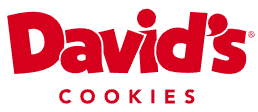

|
The Source for Kosher Food and Kosher Specialty Items |
| Note: Orders submitted on Shabbat, the weekend and holidays will be processed promptly on the next business day. | |
|
||||||||||
|
||||||||||
 See more at ShmataWear.com |
 
|
|||||||||
|
||||||||||
|
Mark Shone, a sixth grader,
worked at his grandfather's butcher shop after school. Mark's
job was to sweep the sawdust off of the floor and then spread
new sawdust over the floor. His grandfather taught him a lot
about the kosher meat business but never explained to him the
purpose of the sawdust. One day, Mark's grandfather told Mark
that he would be closing the shop. Mark asked why, and his
grandfather explained that there were fewer and fewer people
keeping kosher these days and because of that there was not much
need for a Kosher butcher shop anymore. His grandfather saw the
sadness in Mark's eyes and said to Mark, "Here, I want to give
you something." His grandfather ripped a piece of butcher wrap
paper off of the big roll on the counter and handed Mark a pen.
He said, "Write your name on this piece of paper." His
grandfather then folded the paper and folded it again, just as
Mark had seen his grandfather do many times when wrapping a
customer's order. He handed Mark the folded piece of butcher
paper and said, "You should have something to remember me and
this shop when we are long gone. Keep this paper in a safe
place." When Mark got home, he did as his grandfather said, and
placed the folded paper in the cigar box he used to keep all his
other small treasures. Many years later, Mark re-discovered his old cigar box that contained the small treasures of his youth. When he saw the folded piece of butcher paper it made tears come to Mark's eyes as he slowly unfolded the paper remembering his grandfather, who had passed away a few years prior, and the good times he had working with his grandfather at his kosher butcher shop. Mark recognized his sixth grade handwriting and remembered writing, "Mark Shone" on the paper. His eyes were full of tears and a drop of tear fell on the paper. Mark wiped his eyes with the back of his hand and noticed that the fallen tear had caused something magical to happen. The letters in Mark's name were slowly moving around on the paper. Mark wiped his eyes again, thinking they were still blurry, but the letters were moving around. When the letters were done rearranging themselves on his grandfather's old butcher wrap paper, Mark read the word, saying out loud, "Kosherman." |
||||||||||
|
|
|||||||||
|
Chapter 11 of Leviticus introduces us to the Jewish dietary
laws, though the word "kosher," meaning proper, appears nowhere in these
passages. (the word "kosher" does appear in the Book of Esther, when Haman
tells Achashverosh that there is a people that does not do the "proper"
thing in his realm). The Hebrew word "kasher" signifies that there is proper
way to eat as a Jew, just as there is a proper way to behave in all
situations. The Torah's rationale for keeping kosher is fairly straight forward. We are to restrict our diets in order to emulate God's model of holiness. But we are still left wondering how controlling our diet leads to holiness. Some have suggested that the Jewish dietary laws are a matter of physical, not spiritual, health. Yet there is little evidence that the Bible is primarily concerned with the effect of the food we eat on our overall health (indeed, a great many kosher foods are not at all healthy and even lead to high cholesterol!). I would suggest that the commandments that restrict what we eat and the manner in which we take life for food consumption are meant to improve our spiritual health. In this regard, the laws of kashrut focus on two important areas of human life: self-discipline and raising the level of our appreciation for the bounty of the world and life itself. By restricting what we eat, the laws of kashrut teach us to practice self-discipline. In fact, the list of prohibited animals that we may eat is random (a pig is not prohibited because it is "dirty" animal and a cow is not permitted because it is "clean" one). Eating other living beings is in itself a compromise between the ideal existence of a human being- not taking any life for the sake of satisfying our hunger- and the reality of human nature- that part of us which cannot avoid brutality and self-indulgence. All of human life is an effort to transcend our basic nature- the ways that we are like animals- and elevate our lives to a higher level- emulating God's example of holiness by respecting all life forms in the world. Judaism is largely devoted to urging human beings to strive toward a higher plane of life, and the laws of kashrut are one of the ways that we do that. By practicing self-discipline, by overcoming temptation, by looking at something desirable yet refusing to indulge ourselves by having it, is the most ideal form of human existence. In short, keeping kosher is the Torah's way of urging us to transcend our basic nature and strive for holiness. The laws of kashrut also encourage us to appreciate the bounty of the world. By restricting our diet, we are asked to express sensitivity toward the variety and beauty of life in this world. By not mixing milk and meat, we are asked to be aware that other forms of life also enjoy and rely on the bond between mother and child. By taking life in the most careful and painfree manner possible, we are asked to express a measure of humility and sensitivity toward other, lower forms of life. Kashrut, on whole, guides us toward a deeper understanding of the sanctity of all life. That is why keeping kosher is not merely a matter of checking packaged foods for a "hechsher" (rabbinic certification). It is also a matter of creating an approach to eating in which we behave in a way that is civilized and dignified. The Jewish culture of eating includes affirming the Divine role in providing food for the world by reciting blessings before we eat, washing our hands to demonstrate that we are striving for a higher spiritual level as human beings, and expressing appreciation for the food that sustains us after we have eaten. As the Torah tells us, we are to keep the dietary laws in order to strive for holiness. By behaving with sensitivity toward all life, by expressing appreciation for food, and by practicing self-discipline, that is exactly what we achieve. |
A Rabbi was walking home from the Temple and saw one of his
good friends, a pious and learned man who could usually beat the rabbi in an
argument. The rabbi started walking faster so that he could catch up to his
friend, when he was horrified to see his friend go into a Chinese restaurant
(not a kosher one). Standing at the door, he observed his friend talking to a waiter and gesturing at a menu. A short time later, the waiter reappeared carrying a platter full of spare ribs, shrimp in lobster sauce, crab Rangoon and other treif that the Rabbi could not bear to think about. As his friend picked up the chopsticks and began to eat this food, the Rabbi burst into the restaurant and reproached his friend, for he could take it no longer. "Morris, what is this you are doing? I saw you come into this restaurant, order this filth and now you are eating it in violation of everything we are taught about the dietary laws and with an apparent enjoyment that does not befit your pious reputation!" Morris replied, "Rabbi, did you see me enter this restaurant?" (Rabbi nods yes) "Did you see me order this meal?" (again he nods yes) "Did you see the waiter bring me this food?" (again he nods yes) "And did you see me eat it?" (nods yes) "Then, Rabbi, I don't see the problem here. The entire thing was done under Rabbinical supervision." |
|||||||||
 Share the above Meme with your friends Copy and Paste the above picture into an email and send to your friends. Click Here to open a new email. |
||||||||||
|
Web Hosting ●
Coupon Codes info@kosherman.com |
|
Kosherman.com is a division of Factor, LLC Kosherman is a service trademark of Factor, LLC Copyright 1999-2025 All Rights Reserved |
|
If you are interested in owning this domain name, please contact domains@factorllc.com with your offer. |